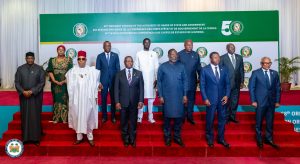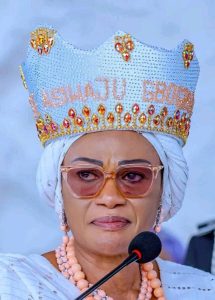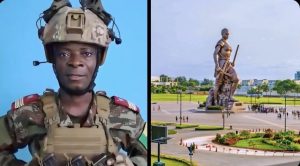LAGOS, 23 June 2025 – The legacy of Nigeria’s June 12, 1993, presidential election, widely regarded as the nation’s freest and fairest, has once again sparked heated debate. At the centre of the controversy are President Bola Ahmed Tinubu, former Jigawa State Governor Sule Lamido, and sections of the Nigerian press. The dispute, however, transcends claims about who played what role in the historic struggle to restore democracy after the annulment of Chief Moshood Abiola’s victory. It is about whether Tinubu, as Nigeria’s current president, embodies the democratic ideals that June 12 represents. The answer, critics argue, is a resounding no.
The June 12 saga has resurfaced as a battleground for political egos, with Lamido accusing Tinubu of supporting the annulment orchestrated by General Ibrahim Babangida and only later joining the pro-democracy movement under General Sani Abacha’s regime. The Presidency, through spokesman Bayo Onanuga, has fiercely rebutted these claims, asserting Tinubu’s pivotal role in the National Democratic Coalition (NADECO) and his vocal opposition to the annulment in the Senate. Yet, this back-and-forth misses the deeper issue: does Tinubu’s leadership today reflect the spirit of June 12—a struggle for justice, fairness, and true democratic governance?
Critics contend that Nigeria under Tinubu is not a democracy but a mere civilian government, marked by authoritarian tendencies that betray the principles of June 12. Allegations of arbitrary arrests and detentions have cast a shadow over Tinubu’s administration. Reports of dissenters being silenced and political opponents harassed suggest a governance style more akin to a civilian tyrant than a democratic leader.
The most glaring example, critics argue, is Tinubu’s alleged interference in Rivers State, where he is accused of orchestrating the removal of the duly elected governor, Siminalayi Fubara, and replacing him with an unelected sole administrator. This move, echoes the very annulment of Abiola’s mandate that sparked the June 12 struggle. “Tinubu has done precisely what Babangida and Abacha did—nullifying the will of the people,” If Tinubu played a role in fighting for June 12, his actions today negate that legacy.”
The situation in Rivers State has become a flashpoint for Tinubu’s critics. Fubara, elected in 2023, has faced intense political pressure, with allegations that Tinubu’s allies have sought to undermine his authority. The reported imposition of a sole administrator—bypassing democratic processes—has drawn comparisons to the military decrees of the 1990s. How can a man who claims to have fought for democracy annul the mandate of an elected governor? This is not the spirit of June 12; it’s the spirit of dictatorship.
Defenders of Tinubu argue that his actions are aimed at maintaining stability in a politically volatile region. They point to his economic reforms and infrastructure projects as evidence of a commitment to national progress. However, these defences ring hollow for those who see the Rivers saga as a betrayal of democratic values.
Even if one accepts the Presidency’s narrative that Tinubu was a key figure in the June 12 struggle—condemning the annulment on the Senate floor and helping form NADECO—his current actions raise uncomfortable questions. The spirit of June 12 was about upholding the people’s mandate, resisting tyranny, and fostering a government accountable to its citizens. Critics argue that Tinubu’s alleged role in subverting an elected governor’s mandate mirrors the very injustices he once opposed. Tinubu claims he fought for June 12, but where is the democracy he fought for? Arresting people, removing elected officials—what’s the difference between him and Abacha? While these sentiments are not universal, they underscore a perception that Tinubu’s presidency falls short of the ideals he once championed.
As Nigeria grapples with economic hardship, insecurity, and political tensions, the debate over June 12 serves as a reminder of the fragility of its democracy. Tinubu’s defenders argue that his leadership is a continuation of the struggle for a better Nigeria, but his critics see a leader who has betrayed and strayed from the path of democratic heroism. The annulment of Fubara’s mandate, stands as a stark contradiction to the principles of June 12—a wound that reopens the scars of 1993.
For many Nigerians, the question is not whether Tinubu played a role in the June 12 struggle, but whether he can live up to its spirit. Until the allegations of authoritarianism and electoral interference are addressed, that question will continue to haunt his presidency.






